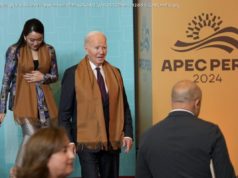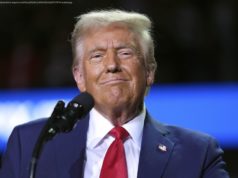As the U. S.-China trade war escalates, state-sponsored narratives of
As Li Xuewei stepped through the ruins of Beijing’s Old Summer Palace, one phrase repeated itself in her mind — and on almost every explanatory sign:
Wu wang guo chi. “Don’t forget national humiliation.”
The 24-year-old medical student was visiting the capital from Shandong for the first time with her boyfriend, Jia Jiyao.
They’d come to see a scene printed in every Chinese student’s textbooks: a devastated palace, its European-style columns now broken, their swoops and arches upturned among jumbled piles of rocks.
Li learned this place’s history as a child. The Qing Dynasty called it Yuanmingyuan, the Garden of Eternal Brightness, a sprawling “garden of gardens” famed for its architecture, art and imperial landscaping.
In 1860, British and French troops ravaged the palace, looting then burning it to the ground as part of the Second Opium War — a war fought over Western forces’ demand for better trade terms and access to Chinese markets.
As the U. S.-China trade war escalates, many Chinese are recalling a state-sponsored narrative of China’s “century of humiliation,” when a weakening imperial China fell prey to Western and Japanese colonialism during the 19th and 20th centuries.
On Friday, the U. S. increased tariffs on $200 billion of Chinese goods. On Monday, China announced it would raise tariffs on $60 billion of American goods in return.
Liu He, China’s vice premier and chief negotiator in the trade talks, told state media that China’s demands are a removal of U. S. tariffs, better terms of procurement, and “balanced text” in the trade agreement.
“The text must be balanced and expressed in terms that are acceptable to the Chinese people and do not undermine the sovereignty and dignity of the country,” wrote the People’s Daily, a state mouthpiece, over the weekend.
The insistence on balance comes from an idea that each of China’s 1.4 billion people memorize in school and then ingest from state propaganda: Wu wang guo chi, especially in the form of “unequal treaties.






